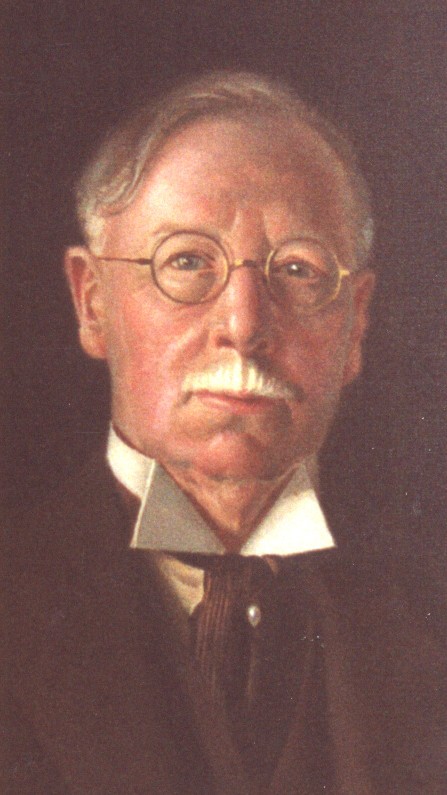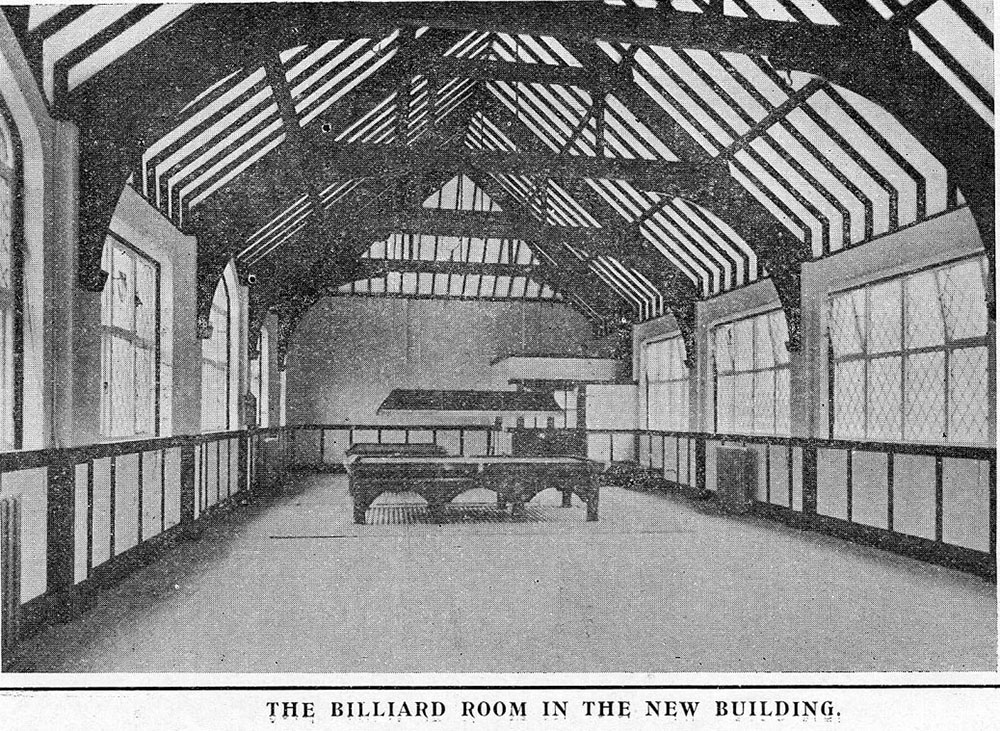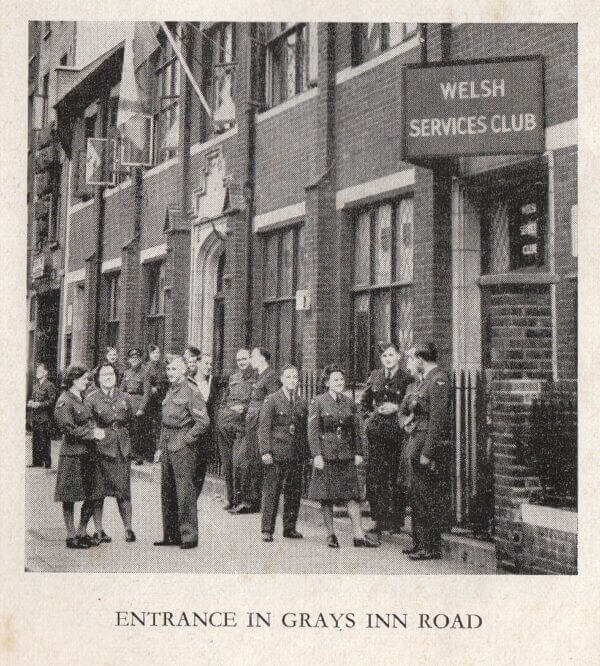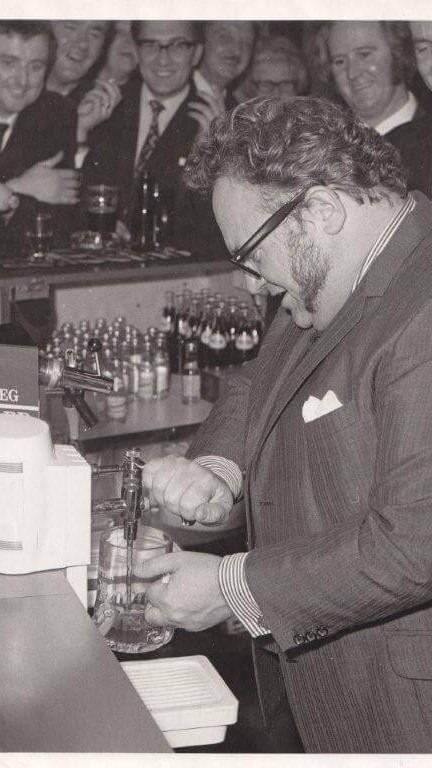HISTORY
London Welsh Centre, since 1920
OUR HISTORY
The origins of the London Welsh Centre date back to 1920 when an organisation ‘Young Wales’ was formed to give a focus for young Welsh people in London.
Prior to this there was no formal meeting place for the Welsh in London outside the various Welsh chapels. Social gatherings on Saturday evenings at a couple of hotels owned by a successful Welsh businessman (O.Picton Davies) demonstrated the real need for a meeting place of non-sectarian character for the younger members of the Community.
The Young Wales Association was founded on 21st October 1920 at the Portman Rooms, Baker Street, when more than 400 members of the London Welsh community attended a meeting presided over by Dame Margaret Lloyd George (who became the YWA’s first President). During the first decade of its life, the YWA lacked a permanent home. Meetings were held first in a little café in Villiers Street, then in the premises of Gwilym Thomas at 26 Upper Montagu Street and later, thanks to O. Picton Davies, at the Hotel Somerset.
At a lunch hosted by O. Picton Davies at one of his hotels in July 1928,
the Rt Hon Lord Atkin and the Rt Hon David Lloyd George spoke in support of a movement to provide headquarters for the Young Wales Association in London.
As a result, Sir Howell J. Williams, a building contractor and London County Council member, purchased a site of just over 15,000 square feet bounded by Doughty Street and Mecklenburgh Square on the West and Gray’s Inn Road on the East, and offered it as a free gift to the Young Wales Association. These premises were formally opened by Margaret Lloyd George on November 29th, 1930.
The premises fronting on Grays Inn Road were completed later, and opened on 5th November 1937,
donated by Sir Howell J. Williams under a charitable Trust to provide a non-political and non-sectarian educational and cultural centre in London.
The Trust’s objects include the promotion of knowledge and use of the Welsh language, the appreciation of literature, music and art and culture for the benefit of the Welsh community, and to provide an information bureau on matters concerning Wales and Welsh life in London.
It was the realisation of a long held dream of the benefactor to provide in London a permanent home for young men and women from Wales. The new accommodation provided a spacious lounge and tea-room in panelled oak on the ground floor, and on the upper floor a billiard room and gymnasium.

INTERWAR PERIOD
The building was dedicated to the memory of those lost in the Great War (the first World War).
Ironically it was only two years after the joyous opening ceremony took place that the country was again at war.
During the period 1940-1946 the Centre became a Services Club providing beds and meals for those Welsh (and a few Canadian) military people passing through London.
It also hosted entertainment such as dances and was used by a Welsh chapel (Eglwys Jewin) for Sunday services when their own premises near the present Barbican site were bombed.
Despite extensive bombing in the area, the building at Grays Inn Road remained unscathed throughout the Second World War and was returned to its original use early in the post-war days, fostering a very successful Youth choir from 1953 and an award-winning Drama Society.
FORMAL OPENING
Later the benefactor’s grandson, Michael Williams became President and a bar was installed and formally opened on 17th March 1971 by (Sir) Harry Secombe.
Today the Centre is the base for three choirs, The London Welsh Chorale, The London Welsh Gwalia Male Choir and The London Welsh Male Voice Choir.
The Centre provides Welsh language classes, something it has done more or less continuously at the London Welsh Centre since 1946. The Saturday morning Welsh classes for children, which began in 1957, resulted in the establishment of the London Welsh School a year later.
1925 saw the introduction of the Centre’s monthly magazine, Y Ddolen. When it reappeared after the Second World War in October 1946 it was called Y Ddinas. Today it is called LWCLl and it is produced for the members of the Centre on a quarterly basis.
The Centre also hosts concerts by visiting choirs from Wales, book readings, discussion programmes, regular meetings of its Forum, and a variety of other cultural events.





